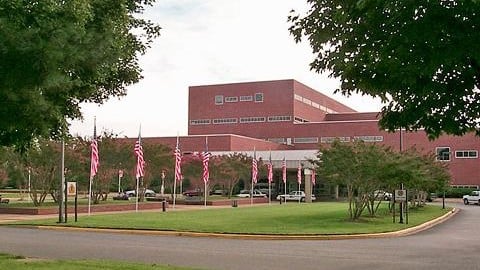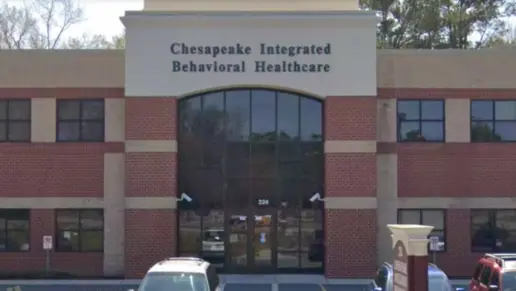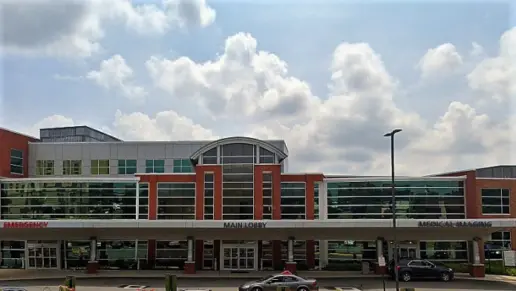About Discovery Mood & Anxiety Program – Fairfax
Positive Directions was established in 1971 in Westport, CT as a volunteer effort by recovering alcoholics to support recovery and bring awareness and prevention into school and community programs. Since then, treatment and prevention programs have evolved to become more disciplined and outcome focused, and Positive Directions today emphasizes evidence-supported clinical treatment services and community focused prevention programs. The Agency’s mission is to provide comprehensive behavioral healthcare, treatment for addictive behaviors and prevention leadership with the goal of improving the lives and mental health of individuals and families. Our vision is that all individuals and families will have the skills, support and resources they need to live a healthy life and contribute to their community. We are a 501(c)(3), state-licensed provider of behavioral health treatment and prevention programs and have received state prevention and awareness funding continuously for close to 25 years, in recognition of our expertise as a provider of evidence-supported, data-driven, locally focused prevention programs to the communities we serve.
The residential program treats trauma, anxiety disorders, depression, self-harm, bipolar disorder, and reactive attachment disorder. This treatment program uses cognitive behavioral therapy and dialectical behavior therapy to empower individuals to develop and practice their decision-making skills. The School Support Program is part of treatment and includes an educational liaison that helps residents with their schoolwork. Residents work through the three phases of CBT, functional analysis, actual behaviors, and behavior change while healing with their peers.
The PHP is an outpatient program that includes individual, family, and group counseling and medication management. Treatment occurs five days per week for six hours per day.
This facility is in-network with Aetna, Beacon, Cigna, Kaiser, Optum, and Unicare. Verify your coverage and out-of-network benefits for mental health and drug rehab treatment directly with your provider.
Latest Reviews
Rehab Score
Gallery
Accepted Insurance













Other Forms of Payment
Private insurance refers to any kind of healthcare coverage that isn't from the state or federal government. This includes individual and family plans offered by an employer or purchased from the Insurance Marketplace. Every plan will have different requirements and out of pocket costs so be sure to get the full details before you start treatment.
Self-pay involves paying for treatment out of your own pocket. You can use savings or credit, get a personal loan, or receive help from family and friends to fund your treatment. If you don't have insurance or your insurance plan doesn't cover a specific program, self-pay can help ensure you still get the care you need.
Financial aid can take many forms. Centers may have grants or scholarships available to clients who meet eligibility requirements. Programs that receive SAMHSA grants may have financial aid available for those who need treatment as well. Grants and scholarships can help you pai for treatment without having to repay.
Military members, veterans, and eligible dependents have access to specific insurance programs that help them get the care they need. TRICARE and VA insurance can help you access low cost or no cost addiction and mental health treatment. Programs that accept military insurance often have targeted treatment focused on the unique challenges military members, veterans, and their families face.
Medicaid is a state based program that helps lower-income individuals and families pay for healthcare. Medicaid covers addiction treatment so those enrolled can use their coverage to pay for rehab. When a program accepts Medicaid the client often pays very little or nothing out of their own pocket.
Addiction Treatments
Levels of Care
Treatments
Mental health rehabs focus on helping individuals recover from mental illnesses like bipolar disorder, clinical depression, anxiety disorders, schizophrenia, and more. Mental health professionals at these facilities are trained to understand and treat mental health issues, both in individual and group settings.
Programs


Clinical Services
Cognitive Behavioral Therapy (CBT) is a therapy modality that focuses on the relationship between one's thoughts, feelings, and behaviors. It is used to establish and allow for healthy responses to thoughts and feelings (instead of unhealthy responses, like using drugs or alcohol). CBT has been proven effective for recovering addicts of all kinds, and is used to strengthen a patient's own self-awareness and ability to self-regulate. CBT allows individuals to monitor their own emotional state, become more adept at communicating with others, and manage stress without needing to engage in substance abuse.
Dialectical Behavior Therapy (DBT) is a modified form of Cognitive Behavioral Therapy (CBT), a treatment designed to help people understand and ultimately affect the relationship between their thoughts, feelings, and behaviors. DBT is often used for individuals who struggle with self-harm behaviors, such as self-mutilation (cutting) and suicidal thoughts, urges, or attempts. It has been proven clinically effective for those who struggle with out-of-control emotions and mental health illnesses like Borderline Personality Disorder.
When men and women in Virginia participate in group therapy sessions, they learn to freely express their emotions in a non judgmental setting. This helps you process your feelings and begin to understand the link between your thoughts, feelings, and behaviors that are associated with addictive behavior.
Men and women in Virginia use individual therapy to focus on addiction related challenges as a necessary part of their drug and alcohol addiction treatment. Your therapist guides you in developing coping strategies, setting realistic goals, and building a strong foundation for an improved quality of life.
Motivational interviewing in Virginia allows clients to examine their lives and consider their options. It is particularly useful if the client lacks confidence in their ability to change or is feeling uncertain about their desire to change.
Trauma therapy helps you understand and manage the emotional and physical responses that often follow witnessing or experiencing traumatic events. Using therapeutic interventions, your therapist works with you to reframe that experience, which in turn reduces your anxiety and helps you regain control over your life.
If you and your partner are facing challenges, couples therapy in Virginia is designed to help you work through those in a healthy way. Common challenges that couples therapy addresses include conflict resolution, financial disagreements, intimacy challenges, health issues, and substance abuse.
Family therapists work with all members of the family to understand the roles they play in the addiction dynamic. Addressing these patterns is crucial to developing healthier ways to interact and support each other, as well as contributing to a more effective recovery for their loved ones.
Life skills trainings involve all the skills a person must have in order to function successfully in the world. These include time management, career guidance, money management, and effective communication. Truly successful addiction recovery is based on the ability to not only live substance-free, but to thrive. Life skills teaches the practical necessities of functioning in society, which sets clients up for success in life, and therefore sobriety.
Nutrition therapy teaches you what to eat and not eat, how to grocery shop, how to cook easy nutritious meals, and how to use food as medicine to address your health issues. These skills will help speed up your recovery process and reduce the risk of relapse.
Because some people find it difficult to talk about their experiences, creative arts therapy is often used to supplement talk therapy. This expressive form of therapy offers a variety of outlets to explore and communicate emotions.
Experiential therapy is based on the philosophy that individuals cannot think themselves out of their struggles. Instead, they need experiences to help them physically and emotionally work through issues. Examples include adventure therapy, music therapy, and equine therapy. These methods are often used to treat substance abuse and other types of behavioral addictions.
Amenities
-
Gym
-
Yoga Studio
-
Residential Setting
-
Private Rooms
Accreditations

The Joint Commission, formerly known as JCAHO, is a nonprofit organization that accredits rehab organizations and programs. Founded in 1951, the Joint Commision's mission is to improve the quality of patient care and demonstrating the quality of patient care.
Joint Commission Accreditation: Yes
Contact Information
10416 Burke Lake Road
Fairfax Station, VA 22039















